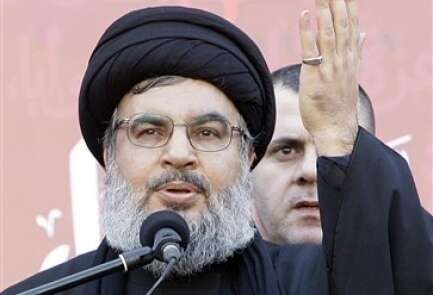The leader of the Lebanon-based terrorist group Hezbollah said Sunday that Western strikes on Syria had failed to undercut its army, help insurgents or even serve Israel's interests.
U.S., British and French forces fired over 100 missiles at Syria early Saturday, in response to a deadly chemical attack that killed dozens of people on April 7. The strikes targeted a weapons research and development center, chemical weapons storage facilities and a military command post.
Hassan Nasrallah said the U.S. military had kept its strikes limited because it knew a wider attack would spark retaliation from Damascus and its allies, Tehran and Moscow.
"The American [military] knows well that going towards a wide confrontation and a big operation against the regime and the army and the allied forces in Syria could not end," Nasrallah said at a rally in Lebanon's Bekaa.
"Any such confrontation would inflame the entire region," he warned.
He said the attack bolstered the confidence of the Syrian army and its allies, as well as probably sinking the already-faltering U.N.-backed peace process on Syria in Geneva.
"If the goal was to pressure Syria to expedite a political solution, I think what happened will complicate the political solution and will strain international relations and the Geneva track, if not torpedo Geneva altogether," Nasrallah said.
He insisted there is no chemical program in Syria, and he likened the attacks in Syria to the West's concern over Iran's nuclear program.
The Iranian-backed Hezbollah has been a vital ally of Damascus in Syria's seven-year civil war, helping President Bashar Assad regain territory from rebels and Islamic State terrorists.
Last week, Nasrallah said that a suspected Israeli airstrike on the T4 air base in the Homs province, which is used by Iran was a "historic mistake."
Israel has not commented on the strike, which is believed to have dealt a major blow to Iran's drone deployment in Syria.




